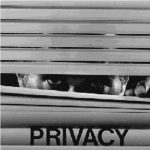Providing information about ourselves online is part and parcel of modern life. Social media channels are almost unavoidable, and yet worryingly the likes of LinkedIn, Facebook, Twitter and WhatsApp provide nasty hackers with a readymade menu of information about our interests, whereabouts and daily schedule of activities.
So how can you and your loved ones protect yourselves? This is what you need to know about staying safe online:
1. Be Smart About Passwords
 Remembering all our passwords can feel like a full-time job! But taking password protection seriously is important. Having something as simple as 1234 or ‘password’ is leaving you wide open to identity theft. So when using social media sites be sure to set them up with a variety of passwords that include upper case and lower case letters as well as at least one number.
Remembering all our passwords can feel like a full-time job! But taking password protection seriously is important. Having something as simple as 1234 or ‘password’ is leaving you wide open to identity theft. So when using social media sites be sure to set them up with a variety of passwords that include upper case and lower case letters as well as at least one number.
If you’re worried about remembering them all, sign up with a password manager like 1Password. That way they are all securely stored in one handy place. Disabling any auto-logins is also a really smart idea. As well as meaning you’re more likely to remember your passwords, it also makes it harder for your information to be stolen.
2. Not Everyone is Your Friend
Don’t accept friend requests from people you don’t recognize and be especially careful about opening links; even from people that you are connected with. Their personal security may well have been compromised, and you could be being lured into the same trap. So check the content of every message before clicking.
3. Remember Nothing is Private
 WhatsApp or Snapchat may feel like private conversations but they aren’t! You wouldn’t shout out your checking account details or Social Security Number to people on the street, and you should consider that conversations on messenger apps are exactly the same.
WhatsApp or Snapchat may feel like private conversations but they aren’t! You wouldn’t shout out your checking account details or Social Security Number to people on the street, and you should consider that conversations on messenger apps are exactly the same.
4. Turn Off Location Based Settings
When an app or website asks to know your location be sure to decline. That way hackers can’t track your whereabouts and use this information against you. The same goes for tagging yourself in places on the likes of Instagram and Facebook.
5. Tidy Up Old Profiles
You may no longer use your Myspace account but that doesn’t mean it can’t be found and the information used to build a picture about you. So log back in and close any profiles that aren’t in active use.
6. Check Out Your Privacy Settings
 It’s pretty normal for social media sites to opt you in to lax privacy settings, so it’s a smart idea to go in and take a look at how accessible you are to online perpetrators. Make your accounts private or inaccessible to anyone but friends.
It’s pretty normal for social media sites to opt you in to lax privacy settings, so it’s a smart idea to go in and take a look at how accessible you are to online perpetrators. Make your accounts private or inaccessible to anyone but friends.
7. Monitor Your Children’s Social Media Activity
Children are using social media sites younger and younger these days, so it’s important to have a handle on the apps and websites they are accessing. Warn them about revealing personal information and that people may not always be who they say they are online. Hackers will often target children given that they are more likely to offer up information about themselves.

Adam Quirk, MBA & MCJ
Adam Quirk, MBA & MCJ, is a criminal justice professional from Wisconsin, as well as a licensed private investigator, true crime blog writer, and world traveler.